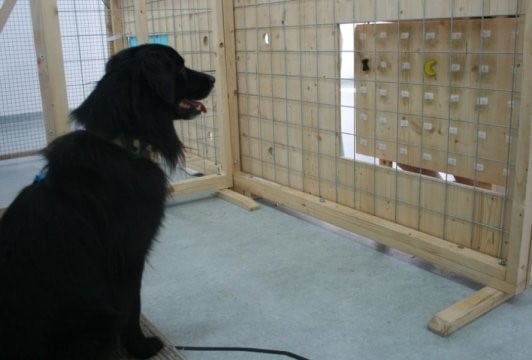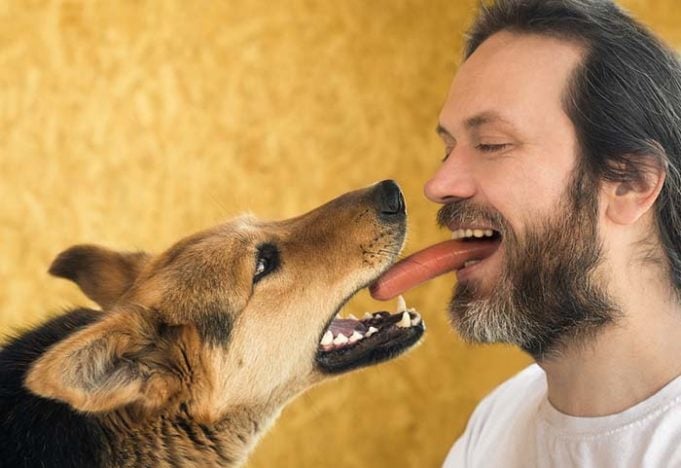A recent study shows that a behavior once considered specific to humans also exists in dogs: the selfless act of sharing food.
A recent study, conducted at the Messerli Research Institute at Vetmeduni Vienna shows that dogs willingly share their food with others, even in complex situations. The study also concluded that the more familiar a dog is with another dog, the more willing it is to share.
History of the Theory
This generosity has long been considered a trait had only by humans. But in recent years, science has revealed that other species – such as chimpanzees, rats, and now dogs – also possess the willingness to share resources. In this study, it was concluded that just the mere presence of another dog rendered the dog with the food more generous.
The team of researchers conducting this study had already proven that dogs were willing to share. They had used a bar-pulling task which allowed the dogs to deliver treats to partner dogs.
But this most recent experiment had a more complex task set-up which was being used to confirm prosocial behavior in canines. Prosocial behavior is defined a voluntary behavior intended to benefit another.

Both studies concluded that dogs prefer to share their food with dogs they already know over dogs that are strangers to them. But the more complicated experiment revealed that the complexity of the task affected the readiness with which the dog shared the food.
The final conclusion was that the method of delivery affects the outcome, and the delivery of the food depends on social proximity (how well the dogs know each other) than scientists had previously assumed.
RELATED: Study Shows Why Some Dogs Are More Independent Than Others
Details of the Study
In the previous study, dogs had to pull a rope to get the treats. In this study, they had to get trained to recognize special “tokens.” At first, it was just one token, which symbolized a food reward for the dog.
During the next phase, one token stood for rewarding a partner dog, and the other token stood for not rewarding the partner dog.
In the experiment, there were two enclosures with three scenarios: one dog in each enclosure; one dog in an enclosure and one dog present but not enclosed; and test dog remaining alone.
Dogs were allowed to reward themselves in order to not feel stressed during the study.
Surprising Conclusions
Even when the tasks were complex, dogs were willing to remain charitable and share their food. They were 3 times as willing to share their food with familiar dogs than with strangers. Similar results have been shown in chimpanzees and young children.
Interestingly, the study also concluded that just the mere presence of a partner dog made each test dog more willing to share. When they were alone, the food deliveries they performed decreased.
This is an aspect known as social facilitation. The theory of social facilitation surmises that people (or in this case, dogs) act differently in the presence of others than they act when left alone.
The researchers hope to study this aspect more in-depth in future experiments.
More and more, we are learning that our canine companions are more like us than we imagined. After millennia of co-evolution between our two species, it is becoming obvious that we share many characteristics, such as loyalty, sacrifice, and as we now know, charity.
The question that remains is: who taught whom?
READ NEXT: Dogs Know What Humans Know By Studying Our Gaze
Reference:
- Rachel Dale, Mylène Quervel-Chaumette, Ludwig Huber, Friederike Range, Sarah Marshall-Pescini. Task Differences and Prosociality; Investigating Pet Dogs’ Prosocial Preferences in a Token Choice Paradigm. PLOS ONE, 2016; 11 (12): e0167750 DOI: 10.1371/journal.pone.0167750













